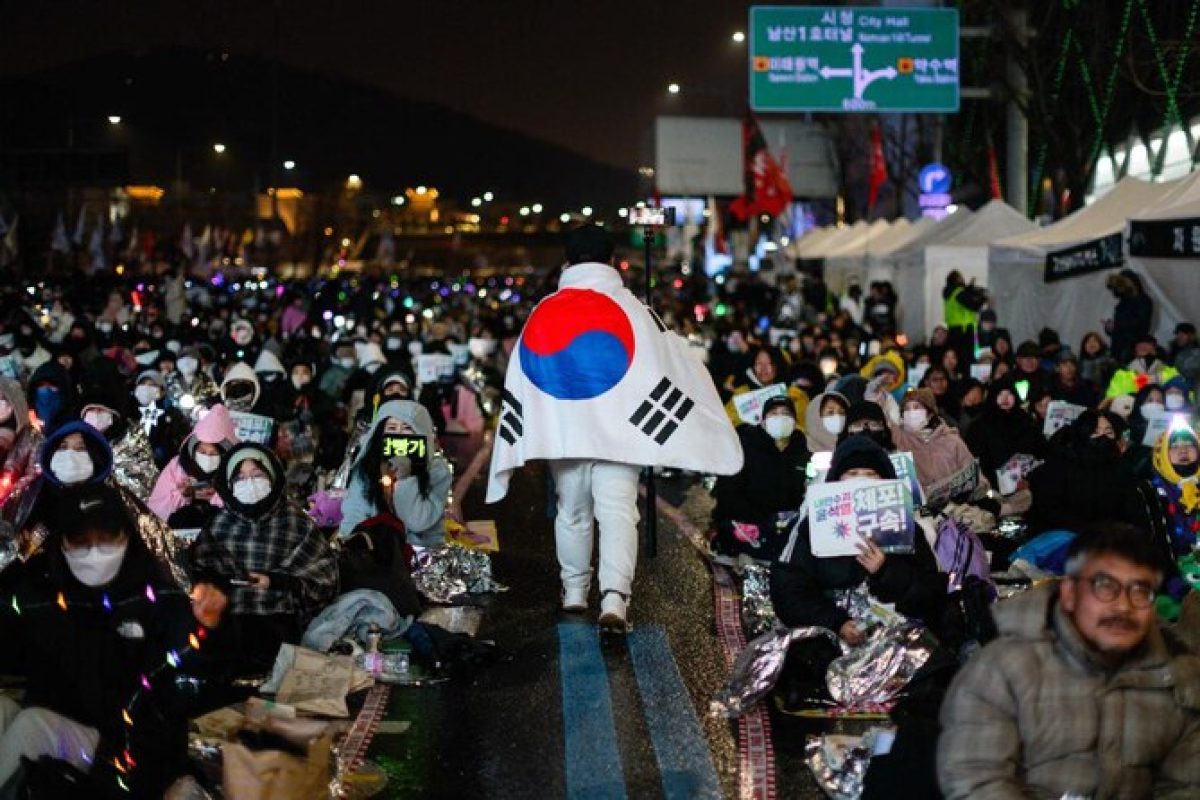
RECENTLY, the political crisis in South Korea has shocked observers, revealing that even a country with a strong economy can face serious challenges. The impeachment of President Yoon Suk Yeol on December 14 marks a significant chapter in the country’s political history, exposing deep political polarization, government shortcomings and a decline in public trust in the administration. The political crisis in South Korea has drawn global attention to the flaws in its governance system and has raised critical questions about the country’s democratic framework.
President Yoon Suk Yeol declared martial law for the first time in South Korea since 1987, which may be considered the shortest martial law in history. This brief martial law caused a stir in South Korean politics; however, the opposition’s impeachment motion against President Yoon was successful, leading to his suspension from office. Currently, Prime Minister Han Duck-soo is performing the duties of acting president. To succeed in the impeachment motion against the South Korean President, 204 votes were cast in favour in the 300-member assembly, while 85 members voted against it, three were absent and eight votes were declared invalid. It is noteworthy that a two-thirds majority, meaning 200 votes, was required to pass the motion; however, only 195 votes were cast in favour. All eyes are now on the Constitutional Court, which has 180 days to decide whether to uphold the parliament’s decision. Depending on its ruling, either Yoon will be removed from office or reinstated, which will have profound implications for his political future.
The last impeachment of a South Korean President occurred in 2016 when the then President Park Geun-hye was removed from her position. The court took 91 days to approve the parliament’s request regarding former President Park Geun-hye. In the case of former President Roh Moo-hyun, the court rejected the parliamentary impeachment motion in 2004 after 63 days of deliberation. If Yoon is impeached, presidential elections must be held within two months of his resignation. In a statement to the nation, President Yoon Suk Yeol said that martial law was enacted due to the opposition’s anti-state activities, stating that the opposition, leaning towards North Korea, had taken control of Parliament. He attributed the recent actions of the opposition Democratic Party, which holds a majority in Parliament, as the catalyst for this decision which rejected the government’s budget and introduced a motion to impeach several senior prosecutors.
This political unrest did not emerge in a vacuum; Yoon’s victory had already intensified polarization between his conservative People Power Party and the progressive Democratic Party, which holds considerable sway in the National Assembly. Consequently, the legislative gridlock further deepened public frustration, as the government struggled to mitigate inflation, economic instability and other pressing concerns. In the context of ineffective governance, it can be said that these circumstances have bolstered support for the removal of Yoon’s government. The increasing public dissatisfaction, fuelled by allegations of corruption, economic mismanagement and failure to address key issues such as healthcare reforms and housing affordability, strengthened the motion for the president’s ousting. Poor governance has driven Yoon’s approval rating to its lowest level ever at just 11 percent. In this environment, youth-led activism has emerged as a powerful force for change. Advocating for transparency and inclusivity, young citizens reflect a shift towards values that align with the digital age and emphasize accountability in leadership. According to a recent Gallup Korea survey, over 90 percent of respondents supported Yoon’s impeachment. This overwhelming support for his removal has called for reforms in the system, stressing the need to prevent future abuses of power and restore institutional balance. More than 75 percent of South Koreans now demand greater accountability and transparency.
Acting President Han Duck-soo has taken decisive steps to ensure stability and security. He emphasized the importance of active diplomacy in protecting national interests and reiterated commitments to the alliance with the United States and engagement with the international community. As internal changes are emerging, the impacts on South Korea’s regional relations are becoming increasingly evident. Political instability has raised concerns about South Korea’s reliability as a consistent partner in its relations with neighbouring countries such as China and Japan. Changes in leadership could prompt a reassessment of its diplomatic alignments, possibly encouraging regional and global powers to reconsider their strategic relationships with Seoul.
The foremost concern is the future of South Korea’s close security cooperation with the US, particularly within the trilateral framework that includes Japan. Yoon’s impeachment has generated uncertainty about the sustainability of this alignment, raising questions about its defence strategy. For Washington, this uncertainty poses challenges to its broader objectives in the Indian and Pacific Oceans, where Seoul is a key and stable partner. Similarly, relations with Japan, which have recently advanced in economic and security cooperation, may face setbacks due to political uncertainty in Seoul. The leadership transition will also impact this dynamic and may slow down the momentum toward greater regional integration. These changes risk adding complexity to the delicate balance of diplomacy in Northeast Asia, highlighting the interlinkages between South Korea’s domestic and regional policies.
China has refrained from exploiting the political dissent in South Korea. Beijing is positioning itself as a stabilizing influence in Northeast Asia, emphasizing the importance of regional cooperation aimed at mitigating the effects of external hostilities and promoting peaceful interactions amidst South Korea’s ongoing turmoil. The impeachment of President Yoon Suk Yeol has highlighted the challenges that South Korea’s democratic system is facing. Therefore, as the nation navigates this period of uncertainty, its leadership and institutions must work collectively to maintain stability, promote national unity and safeguard democratic legitimacy. Successfully addressing these internal challenges will not only strengthen the country’s democratic framework but also enhance its capacity to respond to external pressures. It is essential to ensure that South Korea continues playing a stable and reliable role on the international stage.
—The writer is Chairman, Tehrik Jawanan Pakistan.


